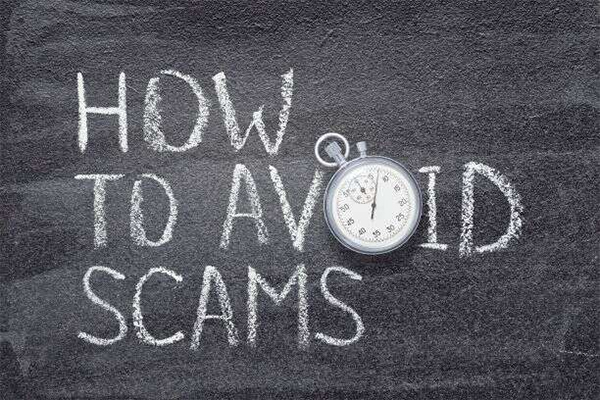The Better Business Bureau has compiled a list of the top 12 scams of Christmas for holiday shoppers and donors:
#1 Misleading social media ads. The 2022 BBB Online Scams Report found that online purchase scams were the most commonly reported. Victims order something from a site they thought was legit but never receive the item.
#2 Social media gift exchanges. Whether it’s wine, advent calendars or dog toys, each year some variation of the same scheme pops up. People are asked to submit to a list where participants exchange gifts with strangers. In doing so, victims unwittingly share personal information and money with con artists.
#3 Holiday apps. There are countless holiday-themed apps where children can video chat live with Santa, light the menorah, watch live reindeer feed or relay their holiday wish lists. Be cautious — they can contain problematic advertising and malware.
#4 Alerts about compromised accounts. Scammers frequently use fear as a tactic. Victims of one popular con receive an email, call or text message saying there has been suspicious activity on an account and urging them to take immediate action.
#5 Free gift cards. Thieves will send bulk phishing emails requesting personal information in exchange for free gift cards. They impersonate legitimate companies and promise gift cards to reward loyal customers or send text messages saying the recipient was randomly selected as a prize winner.
#6 Temporary holiday jobs. Delivery services are top holiday employers, offering job seekers a great way to make extra money with gigs that turn into long-term employment opportunities. Watch out for employment scams asking for money or personal information.
#7 Look-alike websites. The holiday season brings an influx of emails with exclusive deals and enclosed links. Some may lead to look-alike websites created to trick people into downloading malware or making dead end purchases. Not sure where the email came from? Hover over the link to see where it goes.
#8 Fake charities. It’s a busy time for charitable giving. Donors are advised to look out for fraudulent charities and scammers pretending to be individuals in need. Avoid high-pressure decisions — legitimate organizations will welcome a gift tomorrow as much as they do today. Check out every nonprofit before you donate at BBB’s Give.org.
#9 Fake shipping notifications. More consumers are shopping online, increasing the number of notifications about shipping details from retailers. Scammers exploit the surge by sending camouflaged phishing emails that hack into electronic devices.
#10 Pop-up holiday virtual events. Local in-person events like pop-up holiday markets and craft fairs have moved online, leading to an increase in fake event pages that charge admission for free events. Confirm with the original organizers that there is an admission fee.
#11 Top holiday wish list items. Low-priced luxury goods, jewelry, designer clothing and electronics are almost always counterfeits. The same applies for popular toys. When purchasing from resellers, use caution and a credit card just in case the transaction doesn’t quite work out.
#12 Puppy scams. Adding a furry friend to the family this holiday season? Many would-be pet owners turn to the internet to find pets, but experts say a shocking 80% of sponsored pet advertisements may be fake. Go see the cat or dog in person before purchasing.
For general information on how to avoid scams, visit BBB.org/AvoidScams. If you’ve spotted an online scam, report it to BBB ScamTracker. Read more BBB Holiday Tips at BBB.org/holiday.
From BBB Cincinnati























